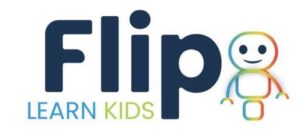Dive Brief:
-
Florida’s largest teachers union is among parties seeking to stop the enforcement of a new state law allowing parents to review and question instructional materials and requires school staff training to ensure instruction doesn’t include prohibited topics.
-
The bill, H.B. 1467, was signed into law last year, and the state Department of Education in January approved training materials for librarians, media specialists and teachers who have classroom libraries, among others, on how to select library and reading list materials. The training urged educators to “err on the side of caution” when making these choices.
-
The petition, which was filed last week and is considered the step before filing a lawsuit, came on the same day Florida Gov. Ron DeSantis announced a proposal to expand existing restrictions on classroom materials.
Dive Insight:
The petition, filed by a coalition of teachers, parents and librarians, says the state agency’s rules implementing the law expanded its scope and, as a result, “prevent most teachers from selecting materials for their own classrooms, foist uncompensated and time-consuming duties on teachers and libraries, effectively forbid parents from contributing books to their children’s classrooms, and impost a costly and burdensome requirement that schools catalog nearly every book, periodical, or other media on their premises.”
Many teachers unions have consistently opposed curriculum regulation laws nationwide, claiming their vagueness leads teachers to walk on eggshells out of fear for job security. The Florida Education Association, which is filing the lawsuit in this case alongside the Florida Freedom to Read Project and Families for Strong Public Schools, now says the department’s rules went a step too far in interpreting the state law and is putting an undue burden on teachers and library specialists.
“As a result of the rules, teachers and school librarians or library media specialists have been compelled to self-censor out of fear of losing their job — or worse, being subjected to criminal allegations — simply for trying to provide a safe learning environment for all students,” the organization said in a news release.
The law, the FEA says, limits parents’ rights to direct the education of their children by not allowing them to contribute to classroom libraries.
“Parents want their children to have access to a wide variety of books in school libraries and in the classroom, and they have been forced to make a difficult choice between the schools they love and access to books,” said Damaris Allen, executive director of Families for Strong Public Schools, in a statement.
On the other side, parent organizations like Moms For Liberty have pushed a movement to ban books on LGBTQ and race-related issues, saying they are not age-appropriate and infringe on their rights to direct their children’s upbringing and education.
DeSantis, and other conservative-leaning states, have for the most part sided with Moms For Liberty and other conservative organizations. DeSantis’ most recent proposal, for example, would ban instruction on sexual orientation or gender identity, unless part of a health or reproductive healthcare lesson, for students in all grades. A similar restriction is already in place for pre-K through grade 3 under the law passed last year that critics call “Don’t Say Gay.”
This debate over parental rights that was building across states in the past few years has reached the federal level in Congress this term, with a Republican-led Parents Bill of Rights Act that would require schools to make their curriculum public, provide parents with a list of library books, and offer twice-a-year parent-teacher meetings.
The bill passed the House in a 213-208 vote Friday morning. However, the measure is unlikely to be considered in the Senate.






Leave a Reply